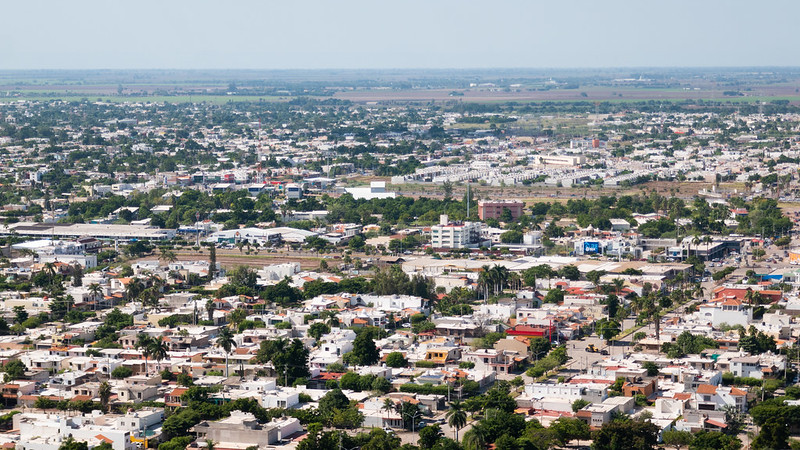Seven individuals and entities were sanctioned by U.S. authorities, while another 28 were charged for their alleged role in facilitating one of the world’s largest transnational drug trafficking operations.
A dangerous synthetic opioid, Fentanyl is more than 50 times more potent than heroin. The DOJ lists it as the leading cause of death for adults aged 18 to 49. Between 2019 and 2021, an estimated 196 Americans fatally overdosed on it every day.
“Fentanyl is the greatest threat to Americans today,” according to a Drug Enforcement Administration (DEA) statement. “It kills more Americans between the ages of 18 to 45 than terrorism, than car accidents, than cancer, than COVID. And the number of children under 14 dying from it has increased at an alarming rate.”
The leading contributor to this opioid epidemic is Mexico’s Sinaloa Cartel, one of the world’s most powerful organized crime groups and formerly led by the notorious drug lord, Joaquin “El Chapo” Guzman Loera.
But following Guzman Loera’s arrest seven years ago, the power vacuum he left at the top has been filled by his children: Ivan Archivaldo Guzman Salazar and Jesus Alfredo Guzman Salazar, and their stepbrothers, Ovidio Guzman Lopez and Joaquin Guzman Lopez.
Collectively, they are known as “Los Chapitos” or the Little Chapos. But they did not ascend to the throne simply because of their father’s legacy.
“To dominate the fentanyl supply chain, the Chapitos kill, kidnap, and torture anyone who gets in the way,” the DEA said. “In Mexico, they’ve fed their enemies alive to tigers, electrocuted them, waterboarded them, and shot them at close range with a .50 caliber machine gun.”
To ensure that their customers get addicted to their product, the cartel hides its fentanyl in pills that resemble Oxycodone, Xanax, or Percocet. They also mix it in with other drugs such as cocaine, heroin, and methamphetamine.
“All to induce Americans to take fentanyl without knowing it and to get hooked on it,” the DEA said. “But the Chapitos know. These are people who gave fentanyl to a man, watched him die, and then sent that same batch of fentanyl to the United States.”
“They inherited a global drug trafficking empire and they made it more ruthless, more violent, more deadly,” the federal law enforcement agency continued. “The Chapitos pioneered the manufacture and trafficking of the deadliest drug our country has ever faced, and they are responsible for the massive influx of fentanyl into the United States.”
Today, Los Chapitos have structured their global network’s hierarchy across 24 identified key figures who hail from Mexico, China, Argentina, and even the United States. Together, they spearhead the operation’s logistics, finances, security, production, and distribution.
Only six are currently in police custody.
And so, the DOJ moved against 28 Sinaloa Cartel figures, including three of the Chapitos and several of their lieutenants, high-ranking members, chemical suppliers, and money launderers.
The charges against them include the alleged manufacturing and distribution of high quantities of fentanyl, as part of a global operation that has earned the conspirators billions of dollars.
But Deputy Attorney General Lisa O. Monaco reiterated that the cartel is not entirely self-reliant at home. She highlighted that chemical companies based in China source the precious precursors needed to produce fentanyl in the cartel’s clandestine labs, before the synthetic drugs are ultimately shipped across the border into the United States.
As a result, China’s Wuhan Shuokang Biological Technology Co. Ltd. (WSBT) and its sole owner, Yao Huatao, were sanctioned by the Treasury for their role in materially contributing to international proliferation of fentanyl.
Yao and two of his associates, Wu Yaqin and Wu Yonghao, were similarly indicted by a U.S. federal grand jury earlier this month on various conspiracy charges that include fentanyl importation and money laundering.
Another Chinese company blacklisted is Suzhou Xiaoli Pharmatech Co. Ltd. (SXPC) for shipping fentanyl precursor chemicals to Mexico that ended up in cartel hands. At the time of the sale, SXPC sales representatives were made aware that the chemicals would be used to manufacture fentanyl, but the sale went ahead anyway, the Treasury said.
The last name on the list is Ana Gabriela Rubio Zea, a Guatemala-based broker who bought fentanyl precursor on behalf of the Sinaloa drug traffickers. According to the Treasury, Rubio Zea is directly connected to Los Chapitos and acted as a middleman between the cartel and Chinese chemical manufacturers, specifically with WSBT and SXPC.
She also allegedly used her contacts to ensure that the chemicals were transported clandestinely without alerting customs officials. For example, she allegedly disguised the chemicals in food containers, or packaged them amongst legal chemicals, so that no red flags would be raised in transit.
When put together, individuals with these skill sets are what enables one of the largest transnational drug trafficking organizations to make billions of dollars off an opioid epidemic.
“They [Los Chapitos] know their product is deadly,” the DEA said. “They know that they are poisoning and killing Americans. They just don’t care because they make billions of dollars doing it. Their greed is shocking and without bounds.”

